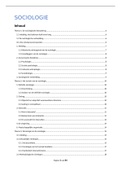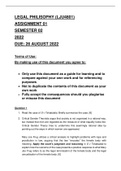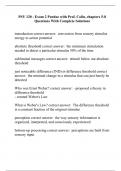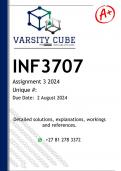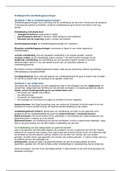Resume
Sociologie samenvatting eerste jaar bachelor sociaal werk
Deze samenvatting bevat alle te kennen leerstof van september tot januari. Deze leerstof komt grotendeels uit de zelfgemaakte cursus van de docenten, er is bijkomende informatie vanuit het handboek in de samenvatting te vinden. Deze samenvatting is voornamelijk voor de Artevelde studenten die de s...
[Montrer plus]
